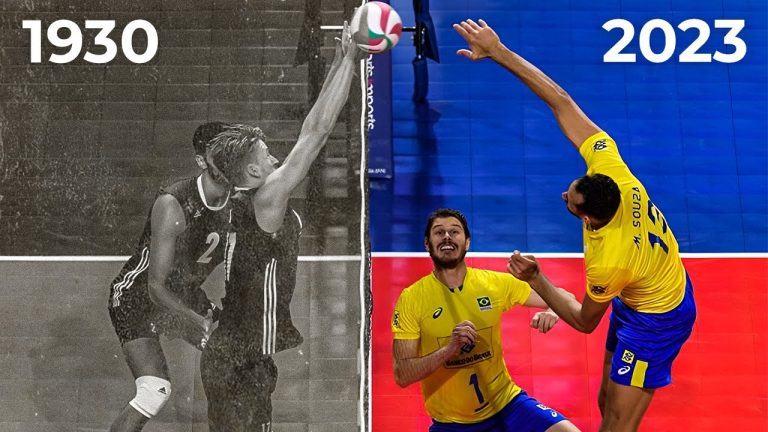
In the fast-paced world of volleyball, trust is the foundation upon which successful teams are built. As a volleyball leader, it is crucial to establish a culture of trust within your team, where every player feels safe and supported. Building trust not only enhances communication and collaboration, but it also boosts morale and performance on the court. In this article, we will explore effective strategies and practical tips for building trust as a volleyball leader, helping you create a winning team that is united, resilient, and ready to take on any challenge.
How can trust be built by coaches?
To build trust as a coach, it is crucial to approach the coaching relationship with a curious mindset and ask plenty of questions. Curiosity not only shows genuine interest in the coachee, but it also fosters an environment of open communication and understanding. By asking questions, coaches can actively listen and gain insights into the coachee’s needs, goals, and challenges. This approach builds trust by demonstrating a willingness to learn and adapt, ultimately strengthening the coach-coachee relationship.
How can trust be established within a sports team?
Building trust in a sports team is a gradual process that requires reliability and consistency. Trust is not something that can be achieved overnight; it is formed through consistent actions over time. One of the key factors in building trust is following through with what you say you’ll do. As a coach, it is crucial not to over-promise and under-deliver. Instead, focus on being reliable and consistently delivering on your commitments.
In order to build trust in a sports team, it is essential to prioritize reliability and consistency. Trust is not easily earned, but it can be fostered by consistently following through on your words. As a coach, it is important to avoid making lofty promises that you cannot fulfill. Instead, focus on being dependable and consistently meeting the expectations of your team members. By consistently delivering on your commitments, you will gradually build trust within the team.
Trust is a fundamental aspect of any successful sports team, and it can be developed by being reliable and consistent. Trust is not something that can be established overnight; it requires ongoing effort and dedication. As a coach, it is vital to avoid over-promising and under-delivering. Instead, focus on consistently following through with your actions and words. By consistently being reliable and dependable, you will build trust within the team and create a strong foundation for success.
How can one become a volleyball leader?
To become a volleyball leader, it is essential to start by leading through example. Show your teammates the importance of hard work by consistently displaying a strong work ethic. When they see your dedication and commitment, it will inspire them to give their best as well. Leading by example sets the foundation for becoming a respected leader on and off the court.
However, being a true volleyball leader goes beyond personal achievements. It involves uplifting your teammates and fostering a positive team environment. Encourage and support your teammates, offering words of motivation and praise when needed. By connecting with them both on and off the court, you can build trust and establish meaningful relationships that will enhance team dynamics.
The ultimate sign of a volleyball leader is finding joy in the success of others. Celebrate the achievements of your teammates sincerely and genuinely. When you can genuinely uplift and rejoice in their accomplishments, it demonstrates your selflessness and true leadership qualities. A volleyball leader is not only focused on personal success but also on creating a sense of unity and shared triumph within the team.
Building a Foundation: The Pillars of Trust in Volleyball Leadership
Building a Foundation: The Pillars of Trust in Volleyball Leadership
In the world of volleyball, trust is the cornerstone of effective leadership. It is the bedrock upon which successful teams are built, allowing players to rely on their leaders and work collaboratively towards a common goal. Trust in volleyball leadership is built upon three essential pillars: communication, transparency, and accountability. Effective leaders understand the importance of clear and open lines of communication, fostering an environment where every player feels heard and valued. They provide regular updates, share information openly, and encourage feedback to ensure everyone is on the same page. Additionally, leaders must demonstrate transparency in their actions and decisions, ensuring that their intentions and motivations are clear to all team members. By being honest, reliable, and consistent, leaders earn the trust and respect of their players. Finally, accountability is paramount in building trust. Leaders must hold themselves and their team members accountable for their actions, ensuring that everyone takes responsibility for their performance and growth. By upholding these pillars of trust, volleyball leaders create a strong foundation for their team’s success and foster a culture of trust, unity, and achievement.
Unlocking Potential: How Trust Transforms Volleyball Teams
Unlocking Potential: How Trust Transforms Volleyball Teams
Paragraph 1:
Trust is the cornerstone of any successful volleyball team. It fosters a sense of unity, allowing players to rely on each other both on and off the court. When trust is present, players feel secure in their abilities and are more willing to take risks, leading to better performance and more exciting gameplay. By cultivating trust within a volleyball team, coaches and players can unleash the full potential of each individual, resulting in a truly formidable and dynamic team.
Paragraph 2:
In a sport as fast-paced and dynamic as volleyball, trust becomes even more crucial. The ability to anticipate your teammate’s moves and reactions can be the difference between a perfectly executed play and a missed opportunity. When players trust each other, they are able to communicate effectively, seamlessly coordinating their actions to create a synchronized and powerful performance. Trust transforms volleyball teams from a group of individuals into a cohesive unit, capable of taking on any challenge that comes their way.
Paragraph 3:
Building trust within a volleyball team requires open and honest communication, mutual respect, and a shared vision. Players must feel comfortable expressing their opinions and concerns, knowing that they will be heard and valued. Coaches play a vital role in fostering trust by creating a supportive and inclusive team culture, where everyone feels like they belong. When trust is established, players are more likely to take ownership of their roles, pushing themselves to new heights and achieving their full potential. Trust truly transforms volleyball teams, unlocking a level of performance that is unparalleled.
Trust the Process: Elevating Leadership in Volleyball
Trust the Process: Elevating Leadership in Volleyball
In the competitive world of volleyball, effective leadership is crucial for success. It goes beyond just being a skilled player; it requires the ability to inspire, motivate, and guide a team towards a common goal. Trusting the process is key in elevating leadership in volleyball. Leaders must have faith in their own abilities and trust in the development of their team members. By embracing this mindset, leaders can create an environment that fosters growth, collaboration, and ultimately, triumph.
To elevate leadership in volleyball, it is essential to prioritize communication. Open and honest communication is the foundation of any successful team. Leaders must be transparent with their expectations, provide constructive feedback, and actively listen to their team members’ concerns. By promoting effective communication, leaders can build trust and strengthen the bond within the team. This, in turn, leads to improved performance and a more cohesive unit on the court.
Furthermore, a great leader in volleyball recognizes the importance of continuous learning and improvement. They invest time and effort into their own development, seeking out opportunities to enhance their skills and knowledge of the game. By staying up-to-date with the latest techniques and strategies, leaders can provide valuable insights and guidance to their team members. This commitment to personal growth not only elevates the leader’s own performance but also inspires their team to strive for excellence.
In conclusion, trust is the foundation, communication is the glue, and continuous learning is the catalyst for elevating leadership in volleyball. By trusting the process and embracing these key principles, leaders can create a culture of success, unity, and growth within their team. With strong leadership at the helm, the possibilities for achievement in the world of volleyball are limitless.
Leading by Example: The Power of Trust in Volleyball Leadership
Leading by example is a fundamental aspect of successful volleyball leadership. In the fast-paced world of volleyball, trust is a powerful tool that can elevate a team’s performance. When leaders consistently demonstrate trustworthiness through their actions and decisions, it fosters an environment where trust becomes contagious. Players feel secure and motivated, knowing that their leader has their best interests at heart. This trust translates into improved teamwork, communication, and ultimately, success on the court.
In the realm of volleyball, trust is not just earned through words, but through actions. A leader who consistently shows up prepared, gives their all in every practice and game, and remains accountable for their mistakes, sets a high standard for their team. By leading by example, they inspire their teammates to follow suit and strive for excellence. This creates a positive cycle where trust grows stronger, leading to a cohesive and high-performing team. Ultimately, the power of trust in volleyball leadership lies in its ability to drive individual and team growth, paving the way for success both on and off the court.
Building trust is the cornerstone of effective leadership in volleyball. By fostering open communication, leading by example, and consistently supporting and motivating teammates, a volleyball leader can create a culture of trust that propels the team to success. With trust, players feel confident in their abilities and their teammates, enabling them to perform at their best. As a volleyball leader, investing time and effort into building trust is not only crucial for team cohesion, but it also lays the foundation for a strong and united squad that is capable of achieving their goals.





